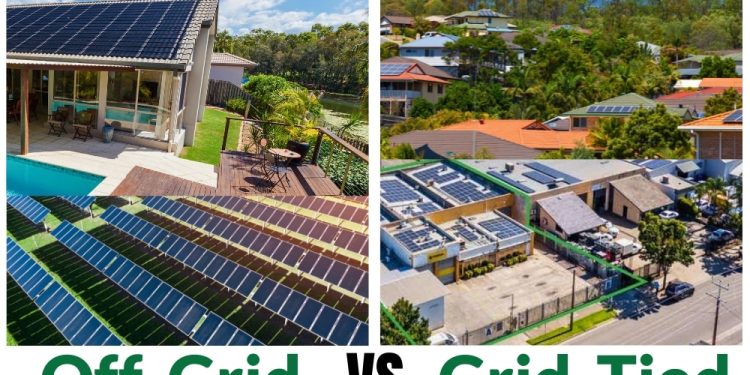Pros
Energy independence: You control entirely your power generation and consumption.
Resilience: Power outages won’t affect you if your system is sized correctly.
Environmental benefits: You’ll maximise your reliance on clean, renewable energy.
Lower cost: Grid-tied systems are generally less expensive as they don’t require extensive battery storage.
Lower maintenance: The grid acts as a backup power source, reducing reliance on battery maintenance.
Feed-in tariffs: In many areas of Australia, you can earn credits for excess solar energy exported to the grid.
Cons
Higher cost: Off-grid systems require significant battery storage, making them more expensive than grid-tied options.
Maintenance: You’ll be responsible for system maintenance and sufficient energy storage.
Limited power: Off-grid systems may only be suitable for high-powered appliances with significant investment.
Grid dependence: During power outages, your system won’t function without a battery backup.
Limited self-sufficiency: You still rely on the grid for some of your power needs.
Feed-in tariffs can fluctuate: The value you receive for exported solar energy can change over time.


















